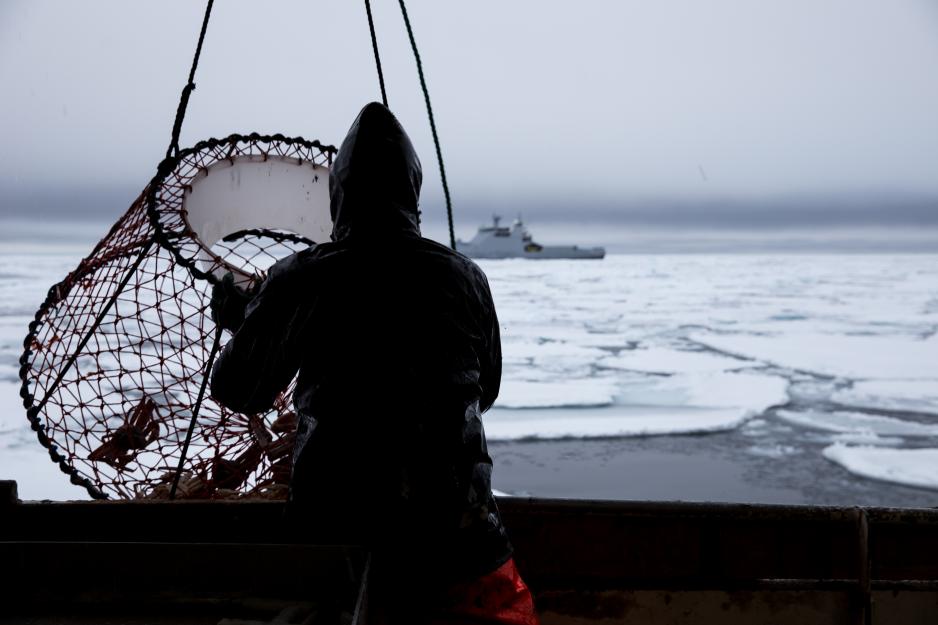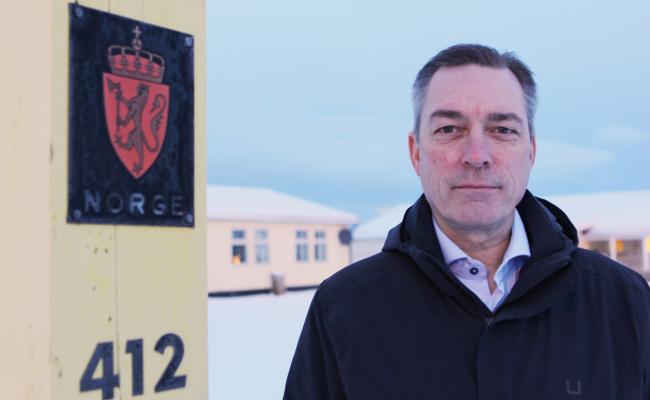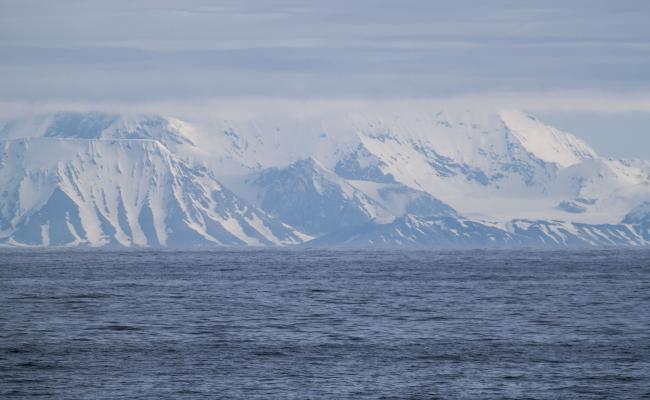Must Interrupt Fishing due to Russian Military Exercises

The oceangoing fishing vessels’ organization says Russian defense forces’ conducting military exercises in areas of the Norwegian Sea and the Barents Sea is a recurring challenge. (Illustration photo: Jonas Selim, the Norwegian Armed Forces)
Norwegian fishing vessels have to interrupt fishing in the Norwegian Sea and the Barents Sea due to Russian military exercises in the High North. Norwegian fishermen notify their organization increasingly often.
“In Fiskebåt’s experience, the extent as well as intensity of Russian military exercises has increased over the past few years”, says Sturla Roald, Head of Division at Fiskebåt, in a press release.
Fiskebåt writes that the organization is notified by Norwegian fishing vessels that they have to interrupt the fishing process due to Russian military exercises in the north increasingly often.
The organization stresses that danger areas covering extensive areas are established during the exercises, and that the exercises are announced only a very short time prior to their commencing.
In a letter to the Norwegian Ministry of Foreign Affairs, the organization asks whether Russian authorities, according to international law, have access to establishing such danger areas in areas covered by Norwegian jurisdiction and also, whether potential requirements to notification of such exercises are complied with.
The relevant areas in question are parts of the Norwegian Sea and the Barents Sea in which fishing activities take place. The organization points out that the most important areas for the Norwegian fishing fleet is the Norwegian economic zone as well as the fisheries protection zone around Svalbard.
“The Russian defense forces’ conducting military exercises in areas of the Norwegian Sea and the Barents Sea where fishing activities take place is a recurring challenge”, says Fiskebåt, the oceangoing fishing vessels’ organization. “We are increasingly often contacted by Norwegian vessels that on short notice have had to interrupt fishing and leave areas rich in fish”, Roald add.
Firing exercises
Fiskebåt mentions amongst others that in August this year, firing exercises were conducted in the so-called Loophole area, claiming a big area affecting several Norwegian as well as foreign shrimp trawlers. In September, exercises were conducted with danger areas defined both in the Russian economic zone the Norwegian economic zone, as well as the fisheries protection zone, that affected many vessels.
“Relating to the exercises in the Russian economic zone is particularly challenging. When Norwegian vessels are to fish in the Russian economic zone, they have to cover significant distances and follow extensive procedures for entering and leaving the zone. The vessels thus risk losing several days of fishing if the fishing process is interrupted due to military exercises and subsequent additional costs”, Roald says in the press release.
“Furthermore, we have received information that the timing for danger areas within the Russian zone are altered on short notice and that vessels have been told to stay further away from the exercise areas than announced in the original warning notices.”
Planning and conducting of Russian military exercises are beyond the control of Norwegian authorities, and we do of course understand that the room for maneuvering is very limited. At the same time, it is in the interest of both countries to make sure that military exercises in the Arctic are conducted in the best co-existence possible with business interests. Nevertheless, Fiskebåt believes that the praxis that currently appears to have developed is fully inacceptable and detrimental to Norwegian interest, the organization writes.
Measures
The letter states that Fiskebåt does not know whether or not these issues have been raised with Russian authorities already, however, still requests the MFA to consider doing this. Furthermore, Fiskebåt presents a series of relevant measures, including:
- When planning exercises, fishing interests in the relevant areas should be taken into consideration. The goal should be to conduct exercises at times and in areas with the least possible fishing activities.
- The danger areas established in many cases cover vast ocean areas. Limiting the extent of these areas should be a goal.
- Scheduled exercises should be announced with longer deadlines that what is currently done, so that the notifications can be included in the vessels’ operational planning. In closing, we question whether Russian authorities under public international law have legal access to establish danger areas in ocean areas subject to Norwegian jurisdiction, and whether the requirements related to notification of such exercises are adhered to. And following from this; how Norwegian fishing vessels should relate to Russian danger zones in the Norwegian economic zone as well as the fisheries protection zone around Svalbard.
Also read
This article was originally published in Norwegian and has been translated by HNN's Elisabeth Bergquist.




